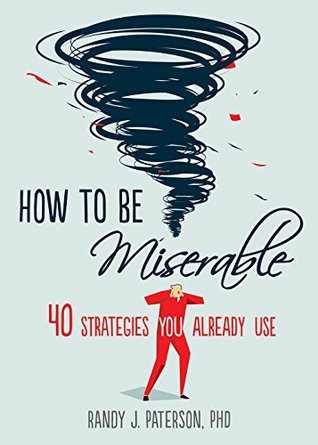More on this book
Community
Kindle Notes & Highlights
We have a longer life span than ever. We’re healthier for longer.
If you wanted to feel worse rather than better, what would you do?
We can do all the right things and still get hit by a bus.
We can choose what to eat, how to spend our time, how much exercise to get, and what to make priorities in our lives.
Our early surroundings have given us drives and instincts that, today, work against our best interests.
If, in the presence of unparalleled wealth and privilege, we are capable of dissatisfaction, then perhaps misery is humanity’s true signature strength.
As the mood darkens, the natural tendency is to withdraw and self-protect, conserving energy as we retreat into the depths of the cave to recover.
To increase your level of misery, reduce your level of exercise.
Those wishing greater unhappiness in their lives, then, must avoid physical fitness at all costs.
Stay up three hours later on days when you don’t have to go to work.
They can relax, open up, converse more easily, and drop rigid boundaries (and sometimes clothes).
The problem is not so much the purchasing itself, but the predictions we make.
“The best way to stop appreciating something is to buy it.”
Goal setting involves the creation of two categories of ambition.
Immediate goals are the small steps in service to an ultimate goal.
The cause of misery is well served by failure.
If you allow yourself to focus on the immediate goals, you will frequently find that you have succeeded.
Our emotions and our behavior depend not on the events of our lives, but on our perception and evaluation of those events.
We do not stand on a hilltop with an unobstructed view of the real world. Instead, we spend our entire lives within an inner cinema—one with multiple screens lining the walls. One screen shows a series of historical dramas reminiscing about our own past. Another displays speculative fiction about our imagined future. A third shows a documentary of the present moment as it passes just beyond the confines of the theater—a feed of the input from our senses. A fourth sensationalizes and fictionalizes that feed, making wild interpretations of the events it portrays.
The emotions you feel depend on the interpretations you make.
Whether we do so deliberately or not, a part of everyone’s life is spent poking around in the archives and viewing old memories.
Happy people tend to show a degree of balance in their attributional style.
Lying in bed, before going to sleep, you would call to mind three things about the day that you enjoyed or appreciated.


